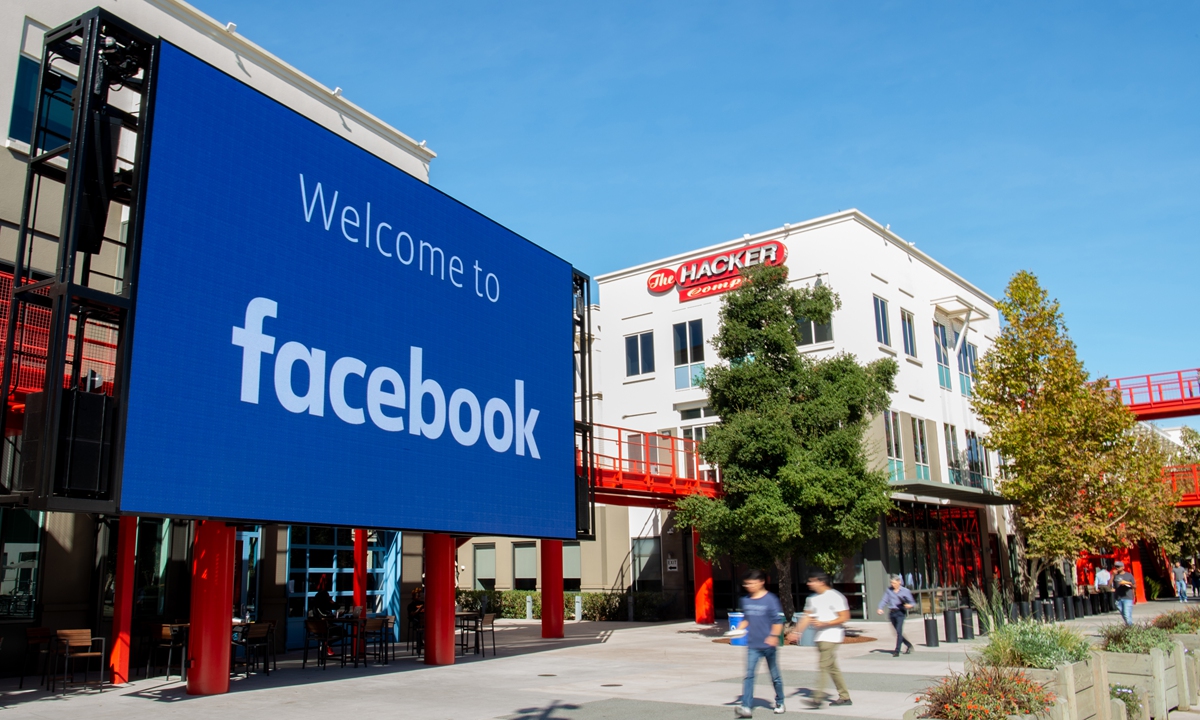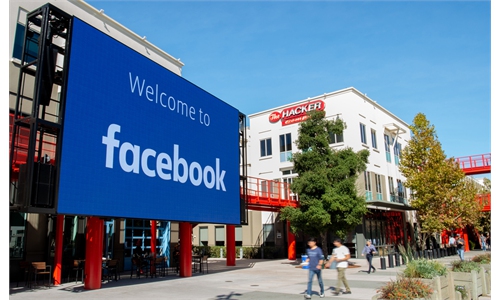Facebook’s WeChat-like QR code payment hitting market too late
Facebook’s latest QR code payment tool is too late

A giant digital sign is seen at Facebook's corporate headquarters campus in Menlo Park, California, on October 23, 2019. Photo: AFP
Facebook confirmed that it is testing a new Venmo-like QR code for person-to-person payments in the US, media reports said on Tuesday.
However, analysts are mostly pessimistic about Facebook's mobile payment trial, as it is a latecomer in the US market, and the US market lacks sufficient mobile connections.
The new feature of Facebook Pay allows users to scan a friend's QR code using their smartphone's camera to send or request payments, while the function Shared Payment Links allows users to send payment addresses outside Facebook.
Netizens said that the system of payments via QR code scanning is similar to WeChat Pay.
Prior to WeChat Pay, Facebook's Instagram launched globally a product called Reels in 2020, which has a video creation tool similar to TikTok's. Forbes magazine described the new product as a "TikTok-clone".
"The development of the mobile payment market in the US is relatively slow. PayPal and Apple Pay have large shares of the market, so the market share of Facebook, a latecomer, will be limited," Tang Dajie, a research fellow at Wuhan University, told the Global Times on Wednesday.
"Facebook wants to make a breakthrough in mobile payment that's dominated by global central banks. From the perspective of the Fed and central banks around the world, I don't think Facebook will be allowed to break through the payment system," Wang Peng, an associate professor at the Gaoling School of Artificial Intelligence at Renmin University of China, told the Global Times on Wednesday.
Analysts also said that the US market is not mature enough to allow for the wide use of mobile payments.
"There are specific reasons that mobile payments are doing well in China. The mobile internet coverage in China is advanced, with a large number of smartphone users and a wide range of application scenarios," said Wang.
More than 98 percent of villages across China had access to optical fiber and 4G as of September 2020, and there's basically no difference between urban and rural areas in mobile coverage rates, according to the Cyberspace Administration of China.
But US President Joe Biden's American Jobs Plan released on March 31 pointed out that more than 35 percent of rural Americans lack access to broadband at minimally acceptable speeds.
As of December 2020, China had 853 million mobile online payment users, accounting for 86.5 percent of mobile internet users, according to the China Internet Network Information Center.
"If Facebook wants to enter the mobile payments sector in the US market, it will be quite difficult as the conditions there may not be favorable," Wang noted.
He added that China's credit card system is not particularly developed, so the country just leapfrogged credit-card payments and went directly to mobile payments.



